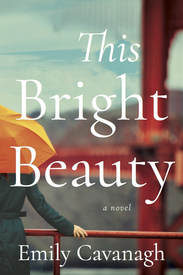|
Lottie I once heard that memory doesn’t develop in a child until age three. But I remember this: sleeping in the crib with Franci, our faces nearly touch- ing, inhaling the milky scent of each other’s breath. e sun refracted through the slats of the crib, washing Franci’s pink skin in gold. Her thumb was tucked tightly between my lips, and I was vaguely aware of the warm, wet feeling of my own thumb in Franci’s mouth. A light wind ru ed the curtains. We slept, we breathed, our arms woven to share thumbs. Whenever someone asks me what it’s like to be a twin, this is the image that comes back to me. I wish I could pluck it from my mind and hold it up to the light like a slide. “This is what it’s like,” I would say. We were born twelve weeks early, our tiny bodies already tired of shar- ing such a small space. I’m sure I started it, always eager, needing to be rst, not even born and already sick of sharing. I picture myself exing my scrawny limbs, all two pounds and four ounces, arching my back in the warm, cramped space of our mother’s womb, and deciding, Enough. I began the long descent into the world, like an animal burrowing through a tunnel, trying to nd the hole on the other end. And then I picture Franci. Two pounds and one ounce, and per- fectly content to spend another three months curled up beside me. Someone should have told me there was no hurry. ings would be no di erent outside that safe warm space. We’d share tight spaces all our lives. We weren’t ready. Oh, our bodies had formed. We had ngers and toes and hearts and lungs and kidneys. We had brains. But Franci wasn’t ready. And maybe I wasn’t, either. For six months we’d lived as one being, our bodies nearly fused together. In the moments we prepared to part our solitary space, I wonder if my mind was doing its own split- ting, fracturing into the Black and White that would eventually rule my life. Later I’d wonder if things would have been di erent had we been allowed those extra months that should have been ours. I began the slow and awful descent, and Franci had no choice but to follow, out into the cold and gaping world, the bright light of life already blinding. I was born six minutes before Franci, and I waited patiently for her to arrive. In our separate incubators we drank oxygen, and plastic tubes were secured to our translucent skin with tape. I must have been so pleased to have my own bed, inches of empty space surrounding me, no elbows crammed into my face, no feet squashing my belly. In those crucial minutes, I was surviving on my own, and I held on to that knowledge so many times later in life. But Franci’s heart was beating too fast, her breath coming in short and jagged gasps. Put me back, her body screamed. I’m not ready. Did I feel guilty then, for what I had started? I wonder if she ever forgave me for it. It was one of the rst stories I remember hearing from Mother. e rest of the story goes like this: Franci was dying. Or not dying yet, but not coming into life, either. en a nurse suggested putting her in the same incubator as me. ey placed her at my side and immediately she calmed down. Her heart rate slowed, and she began to breathe more regularly. And though I imagine I relished the unfamiliar feeling of all that space to myself, I also know that I was more comfortable once Franci was beside me again. In our new shared bed, I coiled my body around my sister, encircling her in a cocooning embrace. ere’s a picture of it in one of the musty yellow photo albums. Two tiny black- haired babies in only diapers, tubes stuck to splayed legs, and the one on the left curved around the one on the right, shielding the other baby from . . . what? From life? Not even a day old, and I’d saved her life. It wasn’t until I was older that I wondered: Why would you repeat such a tale to children, a tale of failure and inability that was present from the beginning? A tale so lled with powerlessness and dependency that it seemed innate. But Mother told the tale because she thought it explained our twinship, how close we were, even then. How different the rest of our lives turned out to be. In the end, Franci would be the one to save my life over and over again. And then one day, she couldn’t. --------------------------------------- Like what you've read so far? THIS BRIGHT BEAUTY is available to purchase--print, Kindle/ebook, or audio. You can find it here.
1 Comment
1/25/2020 09:20:59 pm
Well, I wouldn't be surprised if this book will get a lot of reviews from the readers! I have known Emily Cavanagh ever since, and I have to say that she writes well. Her novels made a remark and it was loved by the public. I have not read this book yet, but I am quite sure that the overall content of "This Bright Beauty" is going to be catchy. Hopefully, those who are not yet familiar with Emily will give her a chance that she deserves!
Reply
Leave a Reply. |
Proudly powered by Weebly

 RSS Feed
RSS Feed